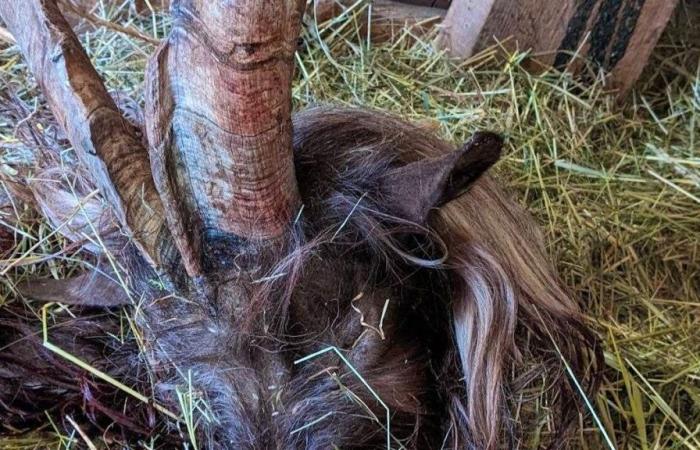A month ago, one morning, Josiane Ginter made the terrible discovery. When she came to take care of the three goats that she had placed in the grounds of the Ermesinde High School for an educational project, this employee of the establishment found one of them decapitated, its body dismembered and the meat of the animal stolen. “I have nothing new on the investigation. The other goat, which I found, shocked, died a week later. He remained on the ground, lying down, no longer moving his feet,” confides Josiane, who even brought home the third goat. “The educational project is finished. I had planned to retire them when I retired in a few months but I thought ahead. I don’t want to bring in any more goats. I am scared. However, I had sheep or goats at school for 16 years,” confides the owner.
The latter does not budge, it is a professional who killed his goat. “Such an animal weighs around 120 to 140 kg, there are 60 kg of meat that have been removed. He was killed for that.”
She assures that following the case, other cases of animal cruelty were reported to her. In addition to the case of the dwarf zebu found with its throat slit in February near Surré, she cites the case of sheep killed in their pasture, three days before her goat, near Diekirch. But also “chickens of which only the remains had been left”. “A sheep was also stolen from me in Lorentzweiler,” she says.
Is there a wave of similar cases? The police specify that they do not have, in their data, a “specific statistical category”. It is therefore difficult to quantify the cases. “As investigations are ongoing, we cannot provide further information on this subject at the moment,” adds the police, assuring that they “are monitoring the situation and will evaluate the results and take, if necessary, appropriate measures.”
The Luxembourg Veterinary and Food Administration (ALVA) has “not been formally contacted because these extreme cases were dealt with directly by the police”, specifies Dr Caroline Merten, deputy director of the ALVA. The latter adds that her administration “has a notification system that allows citizens to report observations on potential cases of animal abuse. An active system based on national legislation on animal protection” with the email [email protected] to make reports.
President of the Centrale Paysanne, Christian Wester assures that reports of stolen animals come “from time to time”. But according to him, members of the Centrale have not reported an explosion in cases. “This can happen, more to individuals, who sometimes have small animals (chickens, sheep) that are not necessarily registered or marked. But less to farmers. We are seeing a slight increase in animals taken by wolves, but there is not, to our knowledge, a wave of animal thefts.”
Are you already following us on WhatsApp?
Subscribe to our channel, activate the little and you will receive a news recap every day in early evening.






